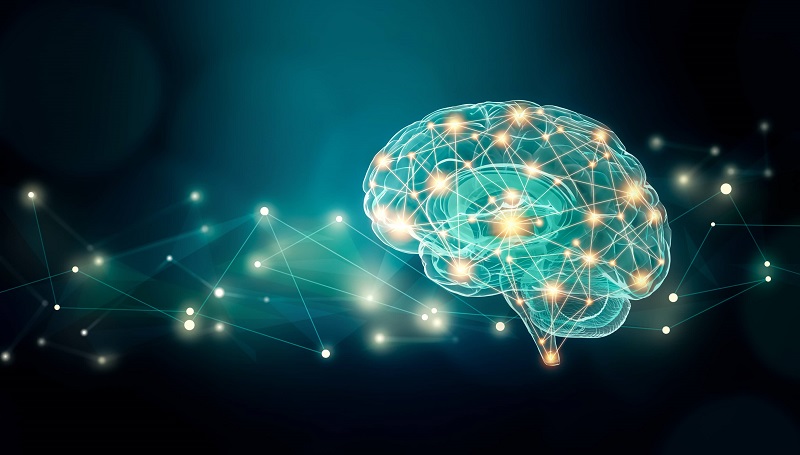Every day, as we get up and run to catch the bus or prepare for work or head out on a bike ride, we use our brains. The more you use your brain, the better it gets at what it does best–and this is why we think brain fitness should be a part of every person’s daily workout routine.
In today’s technological world, the term “brain fitness” has become the catchword for health trends and the new way of life. In an article by Carter L., he provides a breakdown of what brain fitness is and why it is necessary to begin this healthy practice in order to live a happier lifestyle.
How does Brain Training Work?
Brain training is a method of cognitive enhancement that has been shown to improve cognitive function, including memory, attention, and problem-solving skills. In general, the methods used in brain training are similar to those used in traditional cognitive therapy: they include exercises that challenge users to remember or recognize information, focus on tasks for extended periods of time, and develop strategies for solving problems.
One of the most popular forms of brain training is neurofeedback, which uses feedback devices to monitor changes in brain activity. When users achieve specific goals (such as reducing their anxiety), the device provides feedback indicating that their brain is functioning better than before. This feedback can help users learn how to control their own mental processes and improve their overall cognitive performance.
While there is no one type of brain training that is guaranteed to work for everyone, any form of cognitive enhancement can be beneficial in improving fine motor skills, concentration, memory recall, and problem-solving abilities. If you’re looking to improve your intelligence or mood overall, a good place to start might be trying some form of brain training. Visit here indovinelli difficili con risposta
5 Methods for Effective Brain Training
There are many different methods for effective brain training, so it’s important to find one that works best for you. Here are five methods:
1. cognitive engagement exercises
2. mindfulness
3. working memory training
4. crossword puzzles
5. reading
There are many effective brain training methods, so it is important to find one that is right for you. Here are five methods you can try:
1. Brain fitness This is a great way to get started because the programs are tailored to your individual needs and goals. You can also track your progress over time.
2. Memorization exercises: These help you to improve your memory by forming new connections in your brain. You can do these exercises anywhere, and they’re easy to remember.
3. Crossword puzzles: This type of exercise helps to boost your cognitive skills, namely working memory and problem solving abilities. They also help keep your mind active and engaged.
4. Music training: This method helps to improve focus and concentration by stimulating the brain’s pleasure centers. It has been shown to be particularly effective for those with ADHD orADD, as well as seniors who may experience decline in mental ability due to aging.
5. Tai chi: Tai chi is a form of martial arts that has been shown to improve mental agility and balance by working on the central nervous system (CNS).
Tips for Brain Training Long Term and Short Term
1. Start with short-term brain training exercises. These can be done anywhere, at any time and are ideal for beginners.
2. Incorporate mental exercises into your daily routine. This will help you to acclimate yourself to the new environment and stimulate your brain in a positive way.
3. Use brain fitness websites that provide interactive games and puzzles. These can also be helpful in building cognitive flexibility and working on problem-solving skills.
4. Get active! Recent studies have shown that physical activity helps to improve overall cognitive function, including memory and thinking skills. Exercise not only keeps your mind healthy, but it can also help you focus better when trying to train your brain more effectively.
Essential Tools for Brain Fitness
There are a few essential tools that can help you work your brain more effectively. Here are five of the best:
1. A journal or notebook to track your thoughts and progress. This will help you understand where your focus lies and allow you to track your own cognitive improvements over time.
2. A set of flashcards or other memory tools to keep yourself challenged. Challenging yourself with new, difficult tasks will improve your short-term memory as well as your long-term recall abilities.
3. An exercise program specifically designed for the brain – one that engages all areas of the cortex, which is responsible for conscious thought and decision making. These types of exercises can help improve focus, concentration, and overall cognitive function.
4. A music player with a variety of rich soundtracks that can stimulate the brain in a variety of ways – from melodic tunes that promote relaxation to rhythmic beats that boost attention span and motivation.
5. A comfortable chair or couch where you can relax after working out your brain – doing so will help relieve stress and promote better sleep patterns, both of which are essential for optimizing brain health and function.



